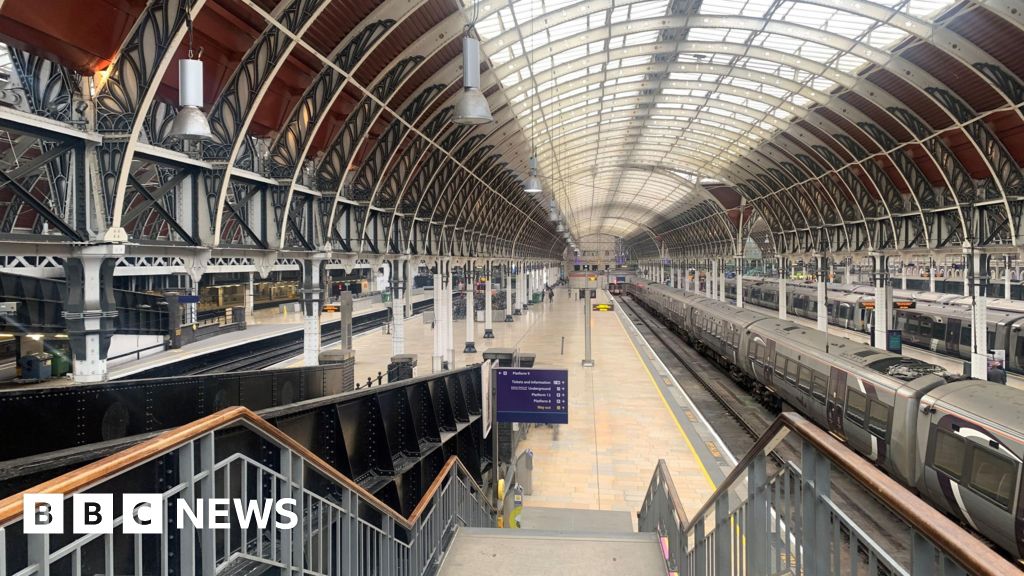A new pay offer for train drivers is a “good deal for the taxpayer” because it will end more than two years of strikes, Treasury minister Darren Jones has said.
The Conservatives say the Labour government has “just caved to the unions”, and argue it will mean higher fares for passengers or tax rises.
The offer, which will be be voted on by members of the Aslef union, includes a backdated 5% increase for 2019 to 2022, 4.75% for 2022 to 2024, and 4.5% for 2024 to 2025.
In a BBC interview, Education Secretary Bridget Phillipson was asked four times who would foot the bill, but declined to be drawn on each occasion.
She told Radio 4’s Today programme it was “important that we settle these disputes, and I’m glad that it sounds like we’re going to be able to completely resolve this”, adding that the government would ensure passengers got a “fair deal”.
The disruption caused and “the massive hit that we took to our economy was completely unacceptable, and was a symptom of the wider failure that we saw right across the public sector, right across industries, by the last Conservative government”, Ms Phillipson said.
Aslef’s leadership is recommending that union members accept the offer.
General secretary Mick Whelan said: “We are pleased that after being treated with utter contempt for the last two years by the privatised train companies, and the previous government that was pulling their strings, we finally have a new government that listens and wants to make the railway work for staff, for passengers and for the taxpayer.”
Chief Secretary to the Treasury Mr Jones said: “Resetting the relationship between government and public sector workers in this instance is a good deal for the taxpayer because we are preventing strikes from happening.
“There is a direct cost to the economy if the strikes continue and we need to work together in partnership with workers and trade unions and business in order to get sustainable growth back into the economy.”
Since June 2022, train drivers have taken 18 days of strike action and refused to work non-contractual overtime, causing huge disruption on the rail network.
According to the Department for Transport, the rail industry has missed out on around £850m in revenue as a result.
But Conservative shadow transport secretary Helen Whately condemned the government’s approach, saying “a ‘no strings’ deal means this will be paid for by passengers and taxpayers”.
“Ditching working practice reforms leaves a hole in the finances that can only be filled by higher fares or higher taxes,” she added.
Conservative leadership contender Tom Tugendhat weighed in, accusing Labour of “feeding the union paymasters that they’ve always obeyed”.
He told GB News his party had always insisted on linking public sector pay rises to “productivity benefits”.
“We’ve always asked for transformations in working environments, to make sure that we’re getting more bang, as it were, for your buck.”
Chancellor Rachel Reeves has warned “difficult decisions” will need to be made in October’s Budget, and accused the previous Tory government of leaving a £22bn hole in the public finances.
She has indicated that some taxes are likely to rise, but has insisted Labour will stick to its manifesto promise not to raise income tax, National Insurance or VAT.
Tory shadow Commons leader Chris Philp posted on X that the train drivers’ pay offer and other recent deals with public sector unions were “the choices the Labour government is making that will lead to tax rises this autumn”.

